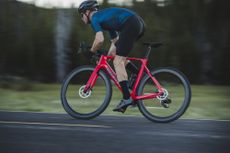Genesis CDA 30 review
The aluminium little brother of the Croix de Fer, the Genesis CDA comes with good mixed-terrain pedigree
- (opens in new tab)
- (opens in new tab)
- (opens in new tab)
- Sign up to our newsletter Newsletter
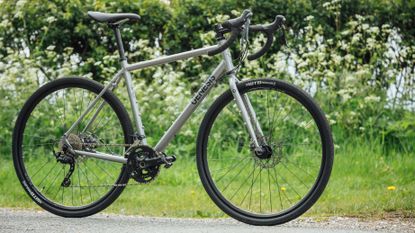
A true jack-of-all-trades, the Genesis CDA 30 offers a bomb-along ride that's reminiscent of a steel tourer. The 'Hellraiser' fork provides ample carrying capacity, but the brakes were slow to react and leave room for improvement.
-
+
Extremely comfortable
-
+
Versatile
-
-
Brakes are awful
Why you can trust Cycling Weekly Our expert reviewers spend hours testing and comparing products and services so you can choose the best for you. Find out more about how we test.

The Genesis CDA is the aluminium version of the British brand’s steel Croix de Fer, the bike Vin Cox rode to the round-the-world record in 2020.
Genesis says it’s suited to commuting, utility, touring, road and gravel. “Beaten up B-roads, bridleways, byways and everything in between, the CDA will tackle it with a grin,” goes the description, and I’ll say from the off that it’s an accurate one.
We tested the Genesis CDA 30 alongside three other bikes at the £1000 price point - the Boardman SLR 8.9, Giant Contend AR 4 and one other model yet to be released. Each bike was tested with the specced tyres, and a pair of Schwalbe Pro One control tyres.
Genesis CDA 30: frame and components
TIG welded aluminium frames are rarely pretty, but the CDA is more workhorse than work of art. However, it does have a pleasingly traditional silhouette with the round-profile, 6066/6061 double-butted tubes.
The fork itself is made of steel. It looks indestructible, and it probably needs to be: it’s studded with rack mounts and looks ready for serious haulage.
The Hellraiser-like mounts protruding from every tube are another striking feature of this bike. I counted 24 in total, meaning you could probably load it up with the contents of both Sainsbury’s and Millets on your round-the-world race if you didn’t want to risk local hospitality. There are mudguard eyes front and rear.
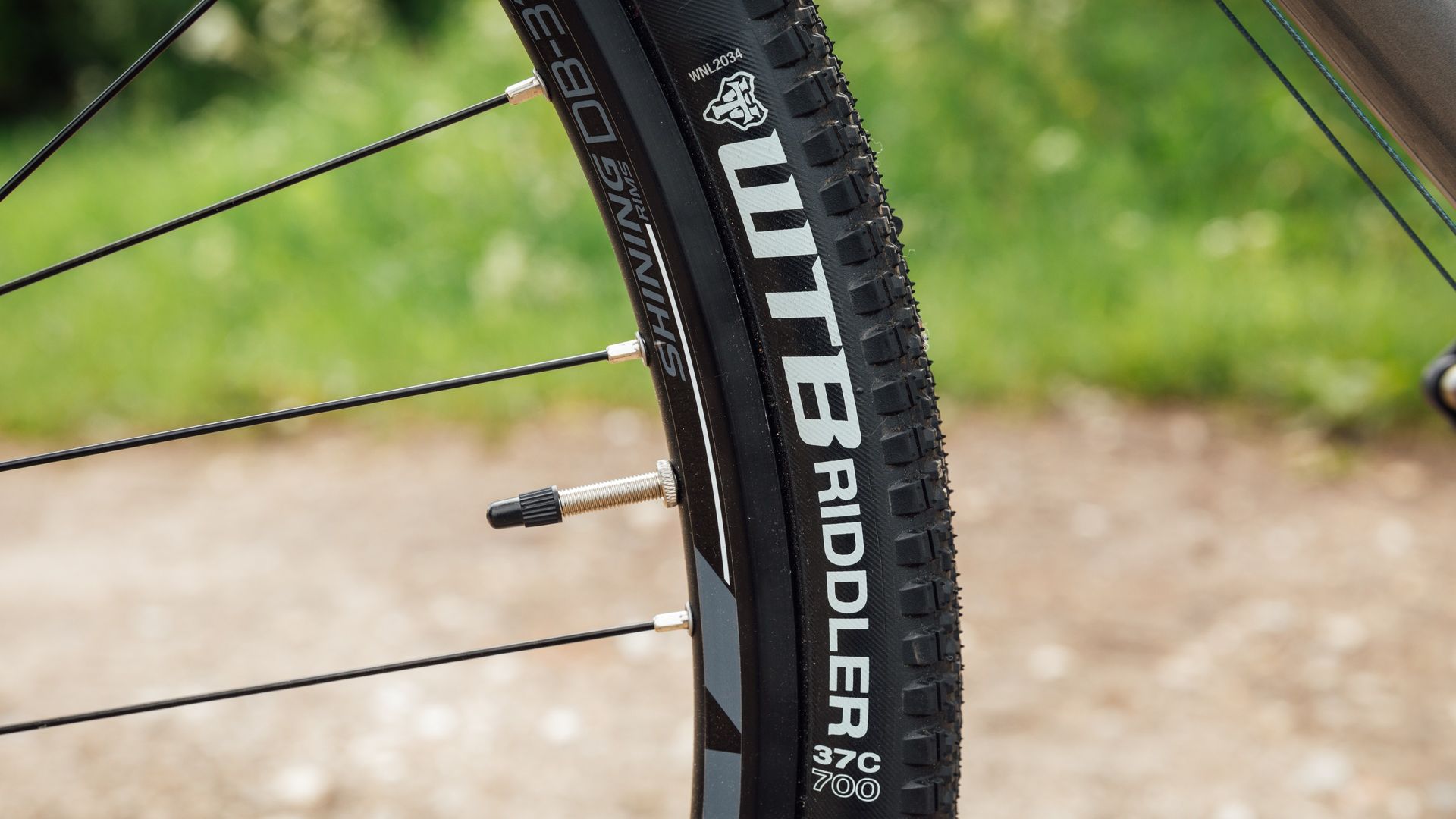
The Genesis seems slightly dated with its quick-release dropouts rather than thru-axles. The fork dropouts face slightly forward with the aim of reducing force on the QR under braking. However, for a bike that’s likely to be used more on-road than off, the only issue is if you want to upgrade and your choice is limited.
With load-carrying clearly in mind, the geometry is relaxed and stable, with a 71° head angle and 73.5° seat angle. Reach and stack are short and tall respectively, as you’d expect. The wheelbase at 1,023mm is longer than a pure road bike but not huge.
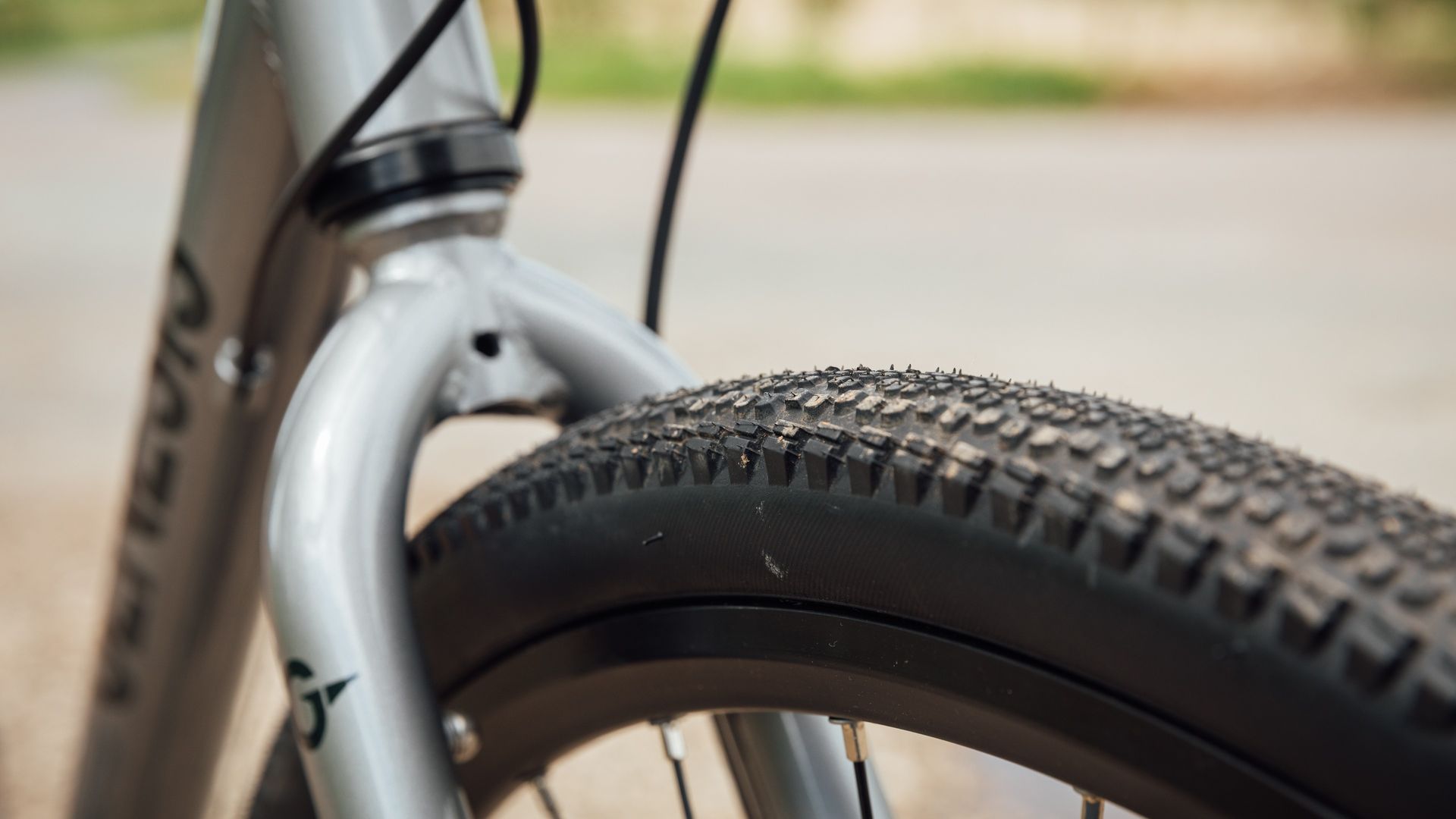
There’s a huge amount of clearance, though. The WTB Riddler 700x37c gravel tyres it comes with aren’t anywhere near capacity for this frame. The 25c control tyres looked laughably skinny.
Clearance of course is thanks to disc brakes – but what these Promax DSK-717 mechanical disc brakes give in clearance, they take away in stopping power.
The groupset is mostly 10-speed Shimano GRX RX400 – the derailleurs and chainset – with Tiagra shifters.
The RX600 chainset 46/30 chainrings paired with a 11-34 cassette give ratios perfect for gravel and bikepacking, and most people won’t need bigger or smaller gears for bog-standard road riding.
It’s clear the wheels are built for strength rather than speed – two 32H fairly bombproof-looking jobs.
The finishing kit is all Genesis’s own. The flared bar is a nice touch for gravel riding – and comfortable for touring too.
Genesis CDA 30: the ride
The armoured spec takes its toll on the overall weight, making the Genesis at 10.85kg a bit of a beast. The geometry was always going to have a similar effect. Sprightly is an overused word in bike reviews – rest assured I won’t be using it here.
However, the surprise is that the Genesis feels so smooth. Aluminium’s reputation for harshness still persists, but there’s no trace of that in the CDA’s ride quality. If I was blindfolded I would have said I was riding an old-school steel tourer.
Obviously the fork is steel, so that’s going to have something to do with it. The WTB 37mm tyres might have played a part in it too, but even with the 25mm control tyres fitted it still felt as though it could steamroller anything in its path.
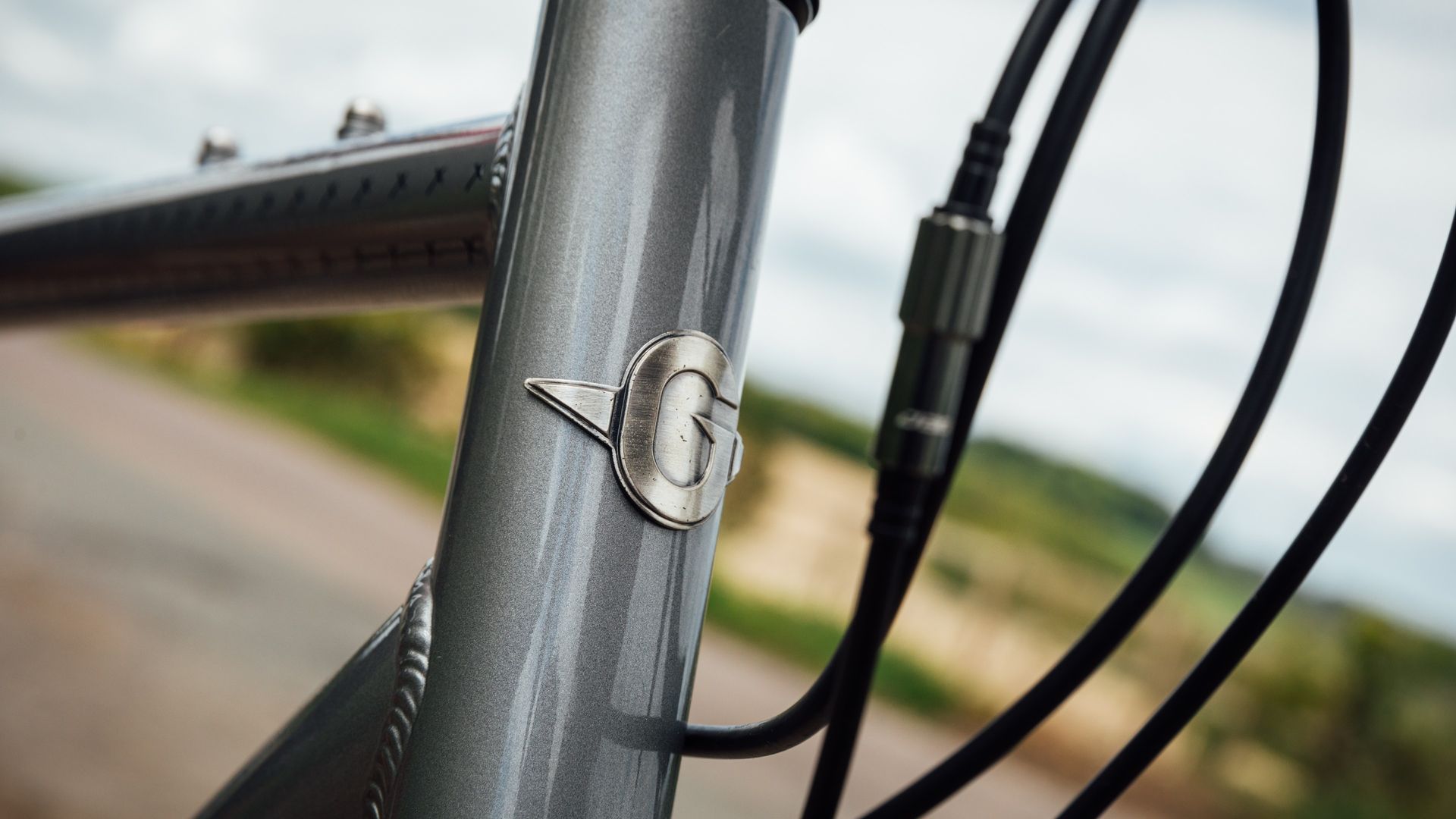
The first time I rode the Genesis I felt as though I was having to put in a bit more effort than usual to keep up with my ridemates’s accelerations. However, the next time I rode it solo I was actually quite pleased with my average speed having gone over two local main road climbs, particularly enjoying the fast, stable descending. Speed on main roads in theory ought to be the CDA’s Achilles heel but, with suitable road tyres, the extra weight and touring geometry is mostly irrelevant – it’s perfectly possible to achieve a lowish roadie position over the bars.
The CDA does have an Achilles heel though, and that’s the mechanical disc brakes. Even after what should have been a decent bedding-in period, they were pretty poor.
We assessed the braking speed of all four test bikes, with a rider accelerating to 30kph and then measuring the distance taken to stop. The Genesis was fourth of four, at 4.73 metres vs 4.2 metres for the (rim brake) Boardman SLR 8.9. Fully loaded with Sainsbury’s and Millets on board I’d definitely need a longer tape measure.
To be fair, better pads than the stock ones might improve it a bit, but these brakes would still be nowhere near the level of hydraulic disc brakes – which gallingly are specced on mountain bikes at this price point – and it’s got to be a sorry state of affairs when rim brakes are superior.
Genesis CDA 30: value and conclusion
The Genesis CDA 30 gives a lot of bike for £999 - and it can do so much more than the pure road bikes on test. If you’re looking for a more comparable bike for majority gravel, the Sonder Camino AL Rival 1 £1,299 gets a better spec with SRAM Rival 1 for the extra £300.
The CDA is a jack-of-all-trades type of bike and it’s true that it isn’t a master of the individual terrains or disciplines in the same way the Boardman is of the road at this price point, for example, but with a lot of cyclists wanting their bikes to do a lot more these days, and with gravel on more people’s riding agendas it could be just the ticket.
| RRP | £999 | Row 0 - Cell 2 |
| Frame | Aluminium | Row 1 - Cell 2 |
| Fork | Chromoly | Row 2 - Cell 2 |
| Shifters | Shimano Tiagra, 10 speed | Row 3 - Cell 2 |
| Crankset | Shimano GRX 46/30 | Row 4 - Cell 2 |
| Derailleurs | Shimano GRX | Row 5 - Cell 2 |
| Cassette | Shimano CS-HG500-10 11-34T | Row 6 - Cell 2 |
| Brakes | Promax Mechanical Disc | Row 7 - Cell 2 |
| Wheels | Shining DB-31 32H | Row 8 - Cell 2 |
| Tyres | WTB Riddler Comp 700 x 37c | Row 9 - Cell 2 |
| Bottom bracket | Shimano Hollowtech II | Row 10 - Cell 2 |
| Weight | 10.85kg | Row 11 - Cell 2 |

Thank you for reading 10 articles this month* Join now for unlimited access
Enjoy your first month for just £1 / $1 / €1
*Read 5 free articles per month without a subscription

Join now for unlimited access
Try first month for just £1 / $1 / €1
Simon Smythe is Cycling Weekly's senior tech writer and has been in various roles at CW since 2003. His first job was as a sub editor following an MA in online journalism. In his cycling career Simon has mostly focused on time trialling with a national medal, a few open wins and his club's 30-mile record in his palmares. These days he spends most of his time testing road bikes, or on a tandem doing the school run with his younger son.
-
 Remco Evenepoel obliterates Tenerife's Mount Teide Strava KOM
Remco Evenepoel obliterates Tenerife's Mount Teide Strava KOMReigning World Champion currently in altitude training before next week's Volta a Catalunya
By Tom Thewlis • Published
-
 Outdoor clothing brand Jack Wolfskin doubles down on bikepacking apparel and luggage
Outdoor clothing brand Jack Wolfskin doubles down on bikepacking apparel and luggageThe outdoor brand rolls into the adventure cycling market with a more refined collection
By Hannah Bussey • Published
-
 High-end bikes still in demand says Giant, as it announces 12.5% revenue increase
High-end bikes still in demand says Giant, as it announces 12.5% revenue increaseBut like much of the industry the Taiwanese manufacturer is also experiencing a surplus of low to mid priced stock
By James Shrubsall • Published


